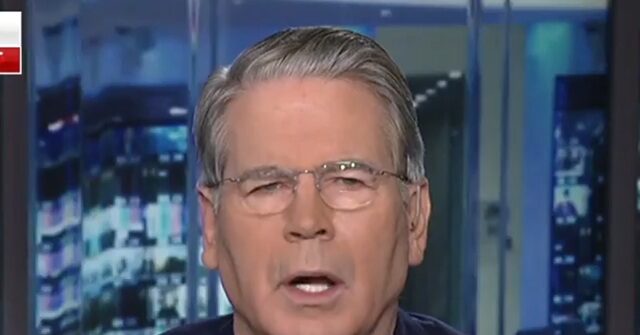Vivian Schiller is familiar with Republican calls to defund public media. When Schiller, the former president and CEO of NPR, resigned in 2011, following the controversial firing of Juan Williams and video surfacing of a fundraising executive criticizing Tea Party lawmakers, the funding debate in Washington, which had been simmering for decades, got reignited. While such calls kicked up again during Donald Trump’s first presidency, three months into his second term, the risk of losing federal funding, says Schiller, is “greater than it’s ever been in the history of public broadcasting.”
News came earlier this week that the Trump White House intends to ask Congress to rescind $1.1 billion in federal funding for the Corporation for Public Broadcasting. If the package is passed, it would have major ramifications for NPR and PBS, which rely on the taxpayer-funded corporation to maintain a broad collective of local member stations that serve communities across the country. The White House proposal comes on the heels of a fiery DOGE subcommittee hearing in which NPR president and CEO Katherine Maher and PBS president and CEO Paula Kerger defended their respective organizations and the federal funding they receive. Trump ally and Georgia representative Marjorie Taylor Greene, who served as chairperson for the hearing, accused both outlets of airing “propaganda” that is “brainwashing the American people,” and called for “the complete and total defund and dismantling of the Corporation for Public Broadcasting.”
Similar rhetoric came this week from the White House, which characterized the government as being “ripped off” by public media, and accused NPR and PBS of spreading “radical, woke propaganda disguised as ‘news.’” In particular, the White House listed examples of coverage around gender, sexuality, and race that it considered “trash.” In a Wednesday Fox News appearance, Office of Management and Budget director Russell Vought confirmed the rescission package proposal, including the CPB cuts, and accused NPR and PBS of liberal bias. “They are almost pioneering the cultural indoctrination of our kids, putting drag queens in children’s programs, doing documentaries on pushing for reparations, and dividing a country on the basis of race,” Vought said, adding that the administration is “excited about” the proposal to gut the funding pipeline.
Kerger said in a Tuesday statement that “rescinding these funds would devastate PBS member stations and the essential role they play in communities, particularly smaller and rural stations who rely on federal funding for a larger portion of their budgets” and “without PBS member stations, Americans will lose unique local programming and emergency services in times of crisis.” Public television stations serve nearly 97% of the nation, regardless of zip code or income level, and PBS is viewed in 87% of non-internet homes, 56% of low-income homes, and 55% of rural homes, according to data from the company.
Maher has also been making a public case for funding, echoing Kerger’s sentiments in an interview on Wednesday on All Things Considered. “If federal funding goes away, that network is absolutely at risk, the quality of service, the ability to cover everyone, people who live in what would otherwise be news deserts,” she said. Maher framed NPR coverage on the local level as “tremendously important as a public service,” given that “about 20% of Americans live in an area without any other local news coverage other than their local public radio station.”
The Corporation for Public Broadcasting currently allocates $535 million annually to public media, a cost of around $1.60 per American taxpayer. The funds, however, are mainly allocated directly to NPR and PBS local member stations, both to maintain newsgathering resources and to license programming from their respective national organization. NPR receives about 1% of its annual operating budget directly from the federal government, with member stations receiving between 8 and 10%. Some of this then travels upstream to NPR when stations license content, which accounts for 30% of NPR’s revenue. As for PBS, the amount of funding varies slightly from year to year, but it currently sits at around 15% of their revenue, according to the organization.
Earlier this month, The New York Times reported the existence of a 36-page document put together by NPR executives in 2011 that explored what would happen to the organization if federal funding were to be revoked. The document acknowledged that most member stations barely operate at break-even and the slashing of federal funds would “cause up to $240 million to vanish and up to 18 percent of roughly 1,000 member stations to close.”
Schiller, who also held high-ranking roles NBC, CNN, Twitter, and The New York Times, and is currently the executive director of Aspen Digital, dismissed the claims of liberal bias hurled at public media, telling me, “what this is really about is, frankly, an assault on the free press,” pointing to other recent White House efforts to attack the media, including barring the Associated Press from the briefing room and Trump suing broadcast networks over coverage disputes.
Regardless, she says, “Independent journalism and federal funding, it’s a toxic mix.” Schiller adds that while she is shocked that it has taken this long for the funding disputes over public media to finally “blow up,” she believes that “the whole system will be better off” by severing all monetary ties. “I hope that this federal funding does not get rescinded this year,” she says, “but let this be a warning that the time now is to begin to move towards removing that reliance.”
“I just wish now that they had taken the last 15 years to start moving along that model, as opposed to now having a gun to the head,” Schiller says.
More Great Stories From Vanity Fair
-
Roman Reigns’s Quest to Be WWE’s Next Great Crossover Star
-
Karen Read’s Second Murder Trial Is Already a Spectacle
-
The Resurrection of Dexter
-
An Incipient New Anti-Trump Resistance Is Upon Us
-
When The Sopranos Took Off, So Did James Gandolfini
-
Usha Vance’s “Very Lonely, Lonely World”
-
Tom Hanks Is Supportive of His Daughter’s Revealing Memoir About Her Troubled Childhood
-
Did Biden’s Aides Cover Up His Mental State—or Was It Group Delusion?
-
Meet Elon Musk’s 14 Children and Their Mothers (Whom We Know of)
-
From the Archive: Behind the Nixon-Kennedy Rivalry
The post Ex-NPR Chief Says Public Media Could Have Better Prepared for a Trump Gutting appeared first on Vanity Fair.




